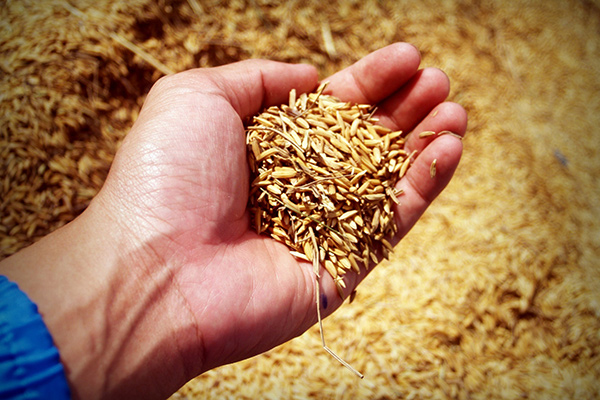Food and nutrition security challenges in an era of plenty
Varghese Manaloor - 12 April 2021

"Achieving the ‘zero hunger’ target by 2030 is unlikely unless concerted efforts are made by policy makers and international agencies," says professor Manaloor, who notes climate change, food waste and the COVID-19 pandemic among many other factors that have contributed to food and nutrition insecurity.
In 2015, the member states of the United Nations adopted the 2030 agenda for sustainable development, with 17 ambitious goals for developed and developing countries. The primary objective of the UN Sustainable Development Goals is the eradication of poverty in all its forms, closely followed by the goal to end hunger by achieving food security, improving nutrition and promoting sustainable agriculture. However, progress has been slow. What accounts for such limited progress and what impact has COVID-19 had on food and nutrition security?
On the supply side, technological advances in agriculture have led to increased food production and the global availability of food. However, due to climate change, very limited arable land available for cultivation and a plateauing of yields, meeting global demand in the future is questionable. The United Nation’s Food and Agriculture Organization (FAO) 2009 report suggested that by 2050, a population of 9 billion would require 3 billion tonnes of cereals alone, compared to 2.1 billion tonnes in 2009. More recently, the FAO has also estimated that about 1.3 billion tonnes of food (about 30% of total global production) is wasted annually.
Reducing food waste and making it accessible in regions where there are food shortages could be part of the solution. Export markets and international institutions have an important role to play, as most of the production is in regions where demand is low and a large percentage of food insecure people (those consuming less than the nutritional target of roughly 2,100 calories per day per person) are in regions where production is low.
On the demand side, economic growth, especially in the developing world, has resulted in higher per capita incomes and a change in household food consumption habits. The big picture scenario is that plenty of food is available, but much is wasted. A recent study suggests that current global food production is sufficient to meet human nutritional needs in 2050 with radical societal adaptation. Therefore, food and nutrition security at the global level might not be a problem, although it continues to be an issue at the individual household level.
The world has a significant number of people that are food insecure. However, having enough food does not necessarily mean that nutritious food for proper health and development is available to everyone. Even though considerable efforts have been made by governments, international agencies and civil societies to address food and nutrition security, several challenges remain.
The World Bank indicates that because of a confluence of factors, including climate change, increased energy and water consumption, the depletion of land and resources and skyrocketing prices of food items, the task of feeding people will become more difficult. While the increased food prices will hit the poor and the marginalized hard, marginal farmers with less than one hectare of land in developing and low-income countries may not be the ultimate beneficiaries of such price increases. Instead, profits go to intermediaries bringing produce to the market, such as commission agents, wholesalers and retailers.
The current global recession and COVID-19 has impacted both the supply and demand side. Nearly 690 million people (8.9 percent of the global population) were undernourished in 2019, an increase of nearly 60 million over the last five years. It is also estimated that COVID-19 will add another 83 to 132 million people to the ranks of hungry people. Achieving the ‘zero hunger’ target by 2030 is unlikely unless concerted efforts are made by policy makers and international agencies.
The awarding of the 2020 Nobel Peace Prize to the United Nations World Food Programme (WFP) for its role in combating food and nutrition insecurity and promoting peace is a welcome sign that the world is finally recognizing the importance of such institutions to address complex sustainability problems.
Varghese Manaloor, Economics, Augustana Campus, University of Alberta. This column was originally published in the Camrose Booster on March 23, 2021.